David W. Stewart, Ph.D.
graduated from Duke in 1970 and stayed in the area for four of the next five years. After graduate training in clinical psychology, he returned with his family to live in the Triangle in 1984. They have never regretted that decision. “Our children now consider this home and we enjoy a wide community of friends through professional contacts, the Carolina Friends School and Durham Friends Meeting. Although I look at places in this area with different eyes now, the memories of forty years ago often well up and blend with the scenes of today. One of the benefits of calling one place home.”
* * *
Ms. Bobbie Teer
Bobbie Spence Teer is a lifelong resident of Durham, NC. She grew up on Parrish Street and then, at about 11 years old, moved to a tobacco farm in 1939. Her time on the farm led her to develop a great love of animals. In high school, she worked at “Kress’s” in downtown Durham, which would later become a site of sit-ins during the Civil Rights era. However, growing up in the segregated south of the 1930s-1940s, Ms. Teer notes that she and other whites had little to no interaction with African Americans; her childhood housekeeper, Kathleen, was one of the only black people she saw or interacted with in her early years. After graduating high school in 1946, Ms. Teer married an American soldier and worked in nursing at the Duke hospital. She later worked at Wrights Machinery, where she met her second husband, Bill Teer. She had two children, has three grandchildren and four great grandchildren. Her sparkling, colorful personality and happy nature make her the life of the party.
(For references to this interview, please see research paper.)
* * *
Professor William C. Turner, Jr., Ph.D.
is a native of Richmond, Virginia, where he was educated in the Henrico public school system. Following graduation from Virginia Randolph High School at the top of his class in 1966, he matriculated at Duke University. He was in the fourth class African American undergraduates admitted to the school. A walk-on to the football team, he was for a time the only black player. He was instrumental in the recruiting efforts that led to the current patterns. He earned three degrees from Duke: BS in electrical engineering [‘71], M.Div [74], Ph.D in religion [‘84].
Turner has been invested deeply in the life of the institution during period of great change development as a student activist, administrator, and faculty member. As administrator, he has served the university as Assistant Provost and Dean of Black Affairs, Acting Director of African American Studies, and Director of Black Church Affairs. In the faculty he has served as Instructor and Assistant Professor of Theology and Black Church Studies, Associate Professor, and Professor of the Practice of Homiletics. His publications include numerous articles and books for both scholarly and church audiences. An active churchman, he served an assistantship in the African Methodist Episcopal Church, and pastorates in the United Holy Church of America: Assistant Pastor, Fisher Memorial [1974-79]; Faith Gospel Tabernacle [1979-81]; Mack’s Chapel [1985-90]. Since 1990 he has pastored Mt. Level Missionary Baptist Church in Durham, where he has been active in the community. He travels widely as a preacher and lecturer in both the academy and the church.
Turner has been married to Joyce Ann Rivers since 1974. They are the proud parents of two daughters–Jamila [Lee Little], and Alice; two sons–William, IV, and Frederick; and one granddaughter, Zuri Little.
* * *
Mr. Daniel Walter
grew up in Springfield, Ohio. He was the salutatorian of his Urbana, OH high school class of 1966. He received a scholarship to Duke University, where he majored in English and was a member of Lambda Chi Fraternity along with William Turner, Ph.D. He also belonged to the mens glee club and the fencing team. He spent his junior year abroad studying English Literature at U.of Exeter (England) and Oxford then graduated from Duke in 1970. Dan spent the next year as a commercial trucker and later managed a terminal for Ligon Specialized Hauling. He was awarded a teaching assistantship at Ohio U. and graduated with an M.A. in American and English Literature in 1972. He studied contemporary American poetry at Harvard the same year. He was an Instructor of English at Urbana College 1973 and published poems in some 15 periodicals. He graduated from the Cincinnati College of Mortuary Science in 1975 and worked with his parents in the Walter Funeral Home until 1977 when he moved to Tucson, AZ,; there he was a real estate broker,owner of a biomedical photography business, and was active in scuba diving and as an underwater photographer. He lived in the Los Angeles area from 1986-90 where he made his living as a professional writer. He returned to Urbana, OH in 1990 where his daughter and only child, Louise Danielle, was born. He has been an active member of the local community ever since, serving on the Urbana Board of Education, the Champaign County Arts Council, and starting his own Big Band, the OK Syncopators. From 1992 on he has been active in insurance sales. He married his loving wife, Cheryl, in 2006, with whom he currently resides in their Urbana home.
(This interview was conducted via Skype and is audio only. Mr. Walter is white.)
Interview with Daniel Walter – audio only by sitesofmemory
* * *
Mr. Russell Glorioso
is a Duke University senior in the Pratt School of Engineering class of 2012. While at Duke he has been active in Sigma Chi Fraternity. After he graduates this May, he will be working in engineering at Accenture in Washington, D.C.
* * *
Ms. Chanelle “C.C.” Croxton
is originally from Washington, D.C. She is currently a Duke University senior (Trinity College of Arts & Sciences class of 2012) and will be graduating this May. She is majoring in Cultural Anthropology with a minor in French and a certificate in Markets & Management Studies. She has been active in the dance group DefMo, Duke’s African Repertory Dance Ensemble, Duke’s fashion magazine Form, and the Circle K Community Service Organization while at Duke and studied abroad in Paris, France in Fall 2010.

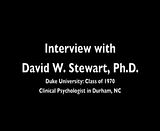
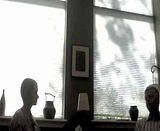
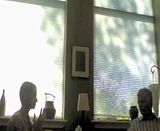
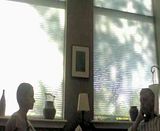
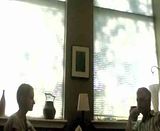





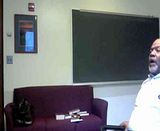
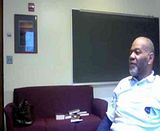
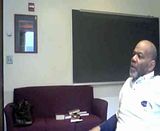
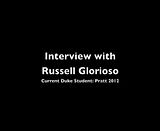
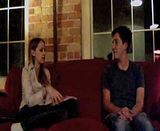




Perhaps the origin of human rights and civil rights activism at Duke dates back to the late 1950s and earlly 1960s. The Chronicle of that era had a number of good investigative journalism pieces that were written, as I recall, by Len Pardue (who went on to edit the Louisville Sentinel (name may be different) and Fred Parker (who went on to the NY Times), and maybe by Bob Windeler (who went to Newsweek). All three are still with us. Their articles covered not only the civil rights movement but the fact that Dean Robert Cox ran a spy system to report on student habits, including political activity, sex and drinking. They also ran a powerful series on how Duke held black maids and janitors in virtual servitude.
Another person who might be available is Frank Ingram. I believe Frank was a divinity grad student in the early 60s. He had strong ties in the black community.
Before I graduated in 1961 several of us were involved in Durham sit-ins and stand-ins to integrate theaters and eating places, and in various ways we were challenging the administration to end segregation at Duke.